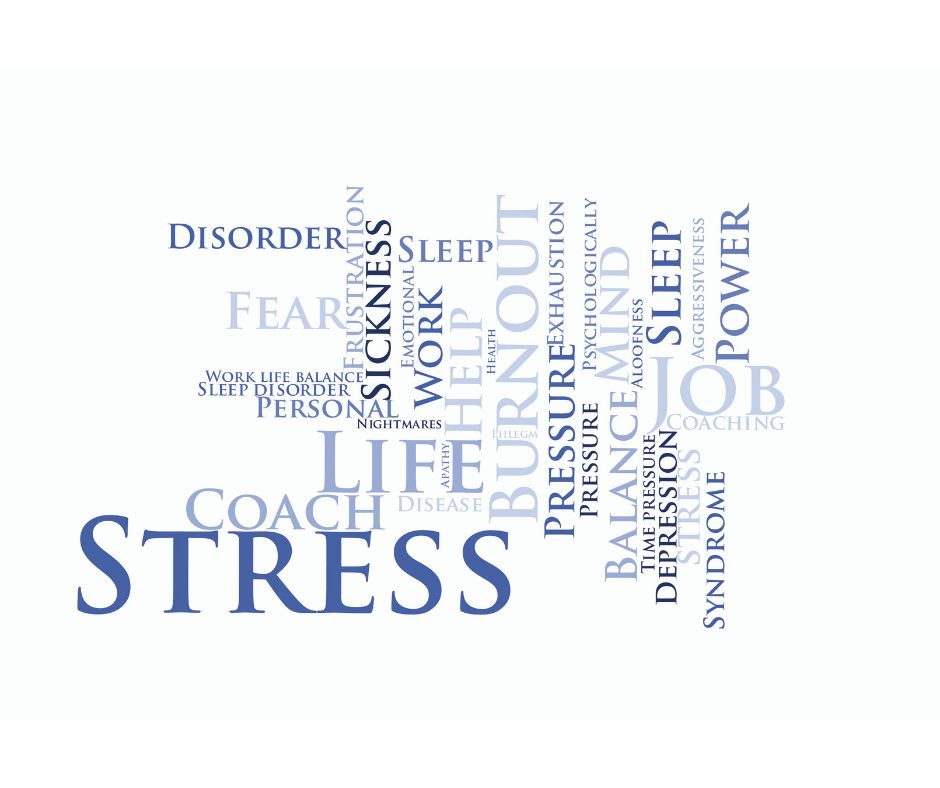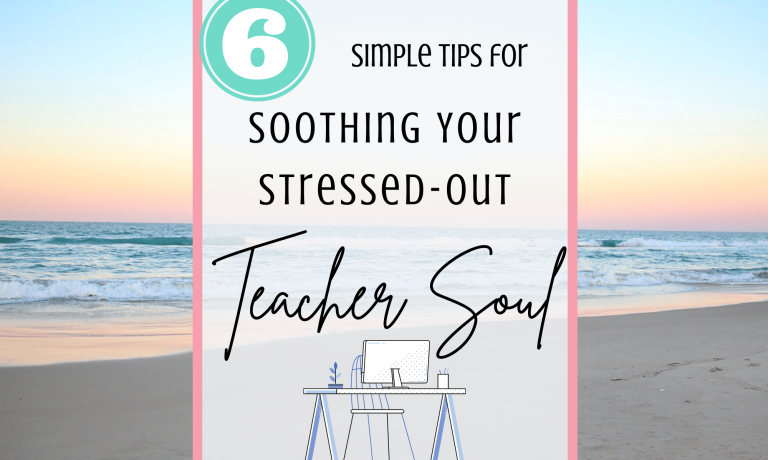Stress. Such a small word for such an incredibly massive problem in the teacher community. Stress is one of the dark blemishes on having a human life experience and without treatment, it acts like a black hole; pulling in all joy and comfort and sanity. Stress is the precursor to anger, addiction, depression and many other catastrophic consequences. As teachers, we spend so much of our lives focusing on other people that we often lose track of maintaining our own mental health.
So what do we do about it? To understand some solutions to teacher stress, we first need to understand the root of the issue.
What is wrong with teacher culture?
There’s this misconception out there that to be a great teacher, you need to be at least a little stressed out. If you’re not knee-deep in lesson plans, worrying about your students, taking endless professional development courses or cramming this year’s updated curriculum over summer vacation, are you even a good teacher?
The short answer? A good teacher is one who is able to balance their mental health with their capacity to care for others by caring for themselves FIRST. If you’re drained from carrying the weight of your own stress, you cannot hope to effectively care for your students. You just can’t. So now what?
I’ll start. Hi, I’m Katrina. I’m a teacher and I’m a teacher stress- addict. I’ve learned I need help.
What is “Compassion Fatigue”?
Compassion Fatigue, also called “Secondary Trauma” is a very common (though new term) for what caregivers, and those in the caregiver occupations (health workers, law enforcement, education/teaching) often deal with as they care for others and become witness to the stress those they care for endure.
Now, more than ever, we are dealing with unprecedented rates of burnout and teacher stress, especially as we work through the COVID crisis as an educational system. CASEL (Collaborative for Social Emotional and Academic Learning) and the Yale Center for Emotional Intelligence launched a survey recently that made an interesting discovery. It found that teachers are definitely stressed about the new circumstances surrounding the virus and hybrid/remote learning, but that these same feelings aren’t new- they’re reiterations and growth of the basis of teacher stress that has been around for a very long time. You can read more about this finding on EdSurge’s website here.
Now I know this comes as no surprise for those of us within the field of education, but it is beginning to open the eyes of the general public just HOW deeply educators are afflicted by burnout and teacher stress.
What are the symptoms of Compassion Fatigue and Teacher Stress?
- Anger
- Sadness
- Feeling hopeless and helpless
- Difficulty sleeping or sleeping too much.
- Difficulty empathizing with the needs of others
- Loss of appetite or unusual increase in appetite
- Loss of motivation to do enjoyable things.

Six Of My Favorite Tips to Help With Compassion Fatigue and Teacher Stress
Teacher Stress Tip # 1: Prioritize Your Additional Commitments
- Get out a sheet of paper and a pencil. Write down each and every one of your regular commitments. Ex: Running clubs or activities, coaching, working at your child’s school, hobbies, mentoring, making dinner, being on committees at school or church etc.
- Number your commitments in order of most important to least important.
- Gradually remove yourself from your lower-tier, unnecessary commitments or work with others to lessen your commitment level (ex. hosting bible study once a month instead of every week, reaching out to others to ask for help in covering some of your additional commitments, etc.)
- Remember: the fear of letting people down is less important than your mental health. Your mental health is priority #1 in reestablishing power over your own life and helping heal your teacher soul.
Teacher Stress Tip # 2: Make The Important Decisions and Put Students In Charge of the Rest
Did you know teachers make, on average, 1,500 decisions a day? We have all sorts of things vying for our attention and it can be utterly exhausting to do it all on our own. We have to handle lesson planning, mediation between students, technology glitches, grading homework, classroom management, assessing growth towards state standards, communicating with parents, or perfecting performances all the while dealing with near constant disruptions:
- A parent wants to meet with you in the principal’s office after class about something you said to their child.
- A student fell and split open their lip.
- The office called and needs your attendance to be taken immediately.
- There’s a fire drill or lockdown drill.
- The sopranos are making nasty faces at the altos again and two girls are in tears.
- You have to stop a lesson to take someone’s phone away, label it, and lock it in your desk for safe keeping.
I know I can feel my blood pressure rising just making that list. It’s a lot to handle and we don’t need to do it alone. Here are some of the non-negotiable things I would put myself in charge of:
- Lesson Planning
- Grading & Growth Tracking
- Safety Drills/Attendance
- Classroom Management & Discipline
And these are some of the jobs I would assign to students:
- Marking a preliminary attendance sheet (I would finalize and check for errors).
- Setting up chairs, making seating charts, and telling students where they would be.
- Making copies (I would ALWAYS request a student aide) and would keep a basket on my desk with things that need to be copied.
- Passing out papers, collecting papers, and checking for names on papers.
- Technology. I’d always train one or more “experts” that students could go to when their iPad didn’t work or they couldn’t sign in.
- Setting up a lesson: I’d have students write the agenda on the board and get the computer up and running.
- Tracking bathroom passes. I always put a student in charge of monitoring who was in the bathroom and for how long they’d been out. If the stopwatch hit 5 minutes, a student would request a hall monitor to check on the missing student.
You get the idea. Stop working so hard doing all the less-than-meaningful tasks that students would be THRILLED to do for you. Save yourself and your sanity for the important things- like connecting with and teaching students.
You can read more of my classroom management tips HERE.
Teacher Stress Tip #3: Make an “Unplug Schedule”
Technology is a giant blessing and also a massive curse. Especially as modern teachers when we are teaching both virtually and physically, it’s important to remember to force yourself to work towards a healthy “unplug schedule.” If you normally come home, plop down in front of the TV, or lay on the couch reading Facebook for an hour or two a night, and then watch the evening news before bed and then go to sleep late because you’re up inputting grades into the gradebook, it’s time to set some limits.
- Monitor your technology usage.
- Track your phone usage in your phone settings.
- Set time limits for apps.
- Take your work email off your phone. If you’re waiting on something important, you can log in to check your email. Up-to-the-second notifications aren’t healthy.
- Set a time that technology must be turned off each night before bed- and stick to it.
- Work less during family time. If you need to stay at school for an extra hour each day to grade and lesson plan, go for it! But once your timer goes off, go home and leave school at school. Somethings will go unfinished. That’s ok. Building a routine is important here.
Teacher Stress Tip #4: Get involved in quiet time, mindfulness, & spiritual practice.
There’s a reason why I titled this article, “Soothing Your Stressed Out Teacher Soul.” Your teaching soul is that thing that motivates and sustains you to be a life-changer, but it also houses all of your deep insecurities, emotional weaknesses, and internal pressures. How are you caring for it? Here’s what I do for mine:
- Keep a gratitude journal instead of a diary. Gratitude is one of the “vaccines” against bitterness. Maintaining thankfulness for blessings before bed always helps me sleep better.
- Work through a podcast or course on mindfulness. I’ve spent the better part of a decade working on my own acknowledgement of the present and it still is a skill I consider myself a beginner at. But, I do understand my tendencies better and can often stop myself from spiraling by acknowledging my physical symptoms of teacher stress and drawing attention to my breath. It sounds easy. It definitely takes work.
- Pray or engage with spiritual teaching. As a christian, I love spending time each evening going through a short devotional on trusting God or on working through depression or insecurities. It helps me to center myself on the idea that I’m only in charge of a limited scope of my life. Even if you’re not religious, there are all sorts of great teachers out there to read: Ghandi, Mother Theresa, Buddhist Proverbs, great poetry, or even Brené Brown! The important thing to remember is spiritual practice puts you at peace with the universe and your small role inside of it.
Teacher Stress Tip #5: Work with Animals
Animals have always been one of the most important beings in my life and in my journey of recovery from depression and anxiety. Animals don’t internalize stress and worry in the same way we do and are much more emotionally available (at least dogs generally are) than most humans in our lives. My dogs are a physical security blanket when I’m home alone, they have unbridled joy at the little things in life, and their presence in my home is a soothing comfort when I’m feeling overwhelmed. Animals rely on us for everything and they still have joy and peace for so much of their lives.
Teacher Stress Tip #6: Get Professional Help
Professional mental help is something that I truly believe every single human being on Earth should have easy access to. Therapy is no more “self-indulgent” than a checkup or going to the doctor when you’re physically ill. Nowadays, there is much less stigma attached to getting therapy or mental health counseling than there was even 10 or 20 years ago.
As someone who has seen multiple therapists throughout my life, therapy has quite literally saved my life. I’ve been down some very dark emotional roads that I didn’t know how to escape from and if it wasn’t for therapy, I may not be here today. Therapy is great for a “checkup” (you are doing fine emotionally and want to keep it that way) or a more emergent reason (you’re emotionally exhausted and find yourself feeling differently about your life).
Most health insurance policies cover (at least partially) mental health visits. Contact your benefits department or your health insurance provider to inquire about covered therapists close to you. My school district even covers multiple mental health checkups for teachers each year (outside of our health insurance). Teaching is stressful enough. You don’t need to be alone in doing it.
Final Thoughts on Teacher Stress
- Just because you see the stress that accompanies your career, doesn’t make you weak or incapable of being a good teacher. It literally just means, you’re doing TOO much and need to take an inventory of your mental health. You are certainly not the only one. I can attest that much of my life has been spent overcoming the perception that my mental state is “weak” or “overly sensitive”.
- As teachers we are gifted with a love of teaching and a love for our students, but our mental health needs to take a front and center seat if we want to enjoy teaching and avoid burning out.
- There are TONS of resources for teacher stress, mental health (many of which we will discuss on SheTheTeacher) and there are LOTS of people trained to help you.
- You are so deeply loved, you are one-of-a-kind, and you are NOT alone.
What’s your favorite mental health tip? Do you have any other advice you’d love to share about teacher stress? Post on the SheTheTeacher facebook page! I’d love to hear from you.







